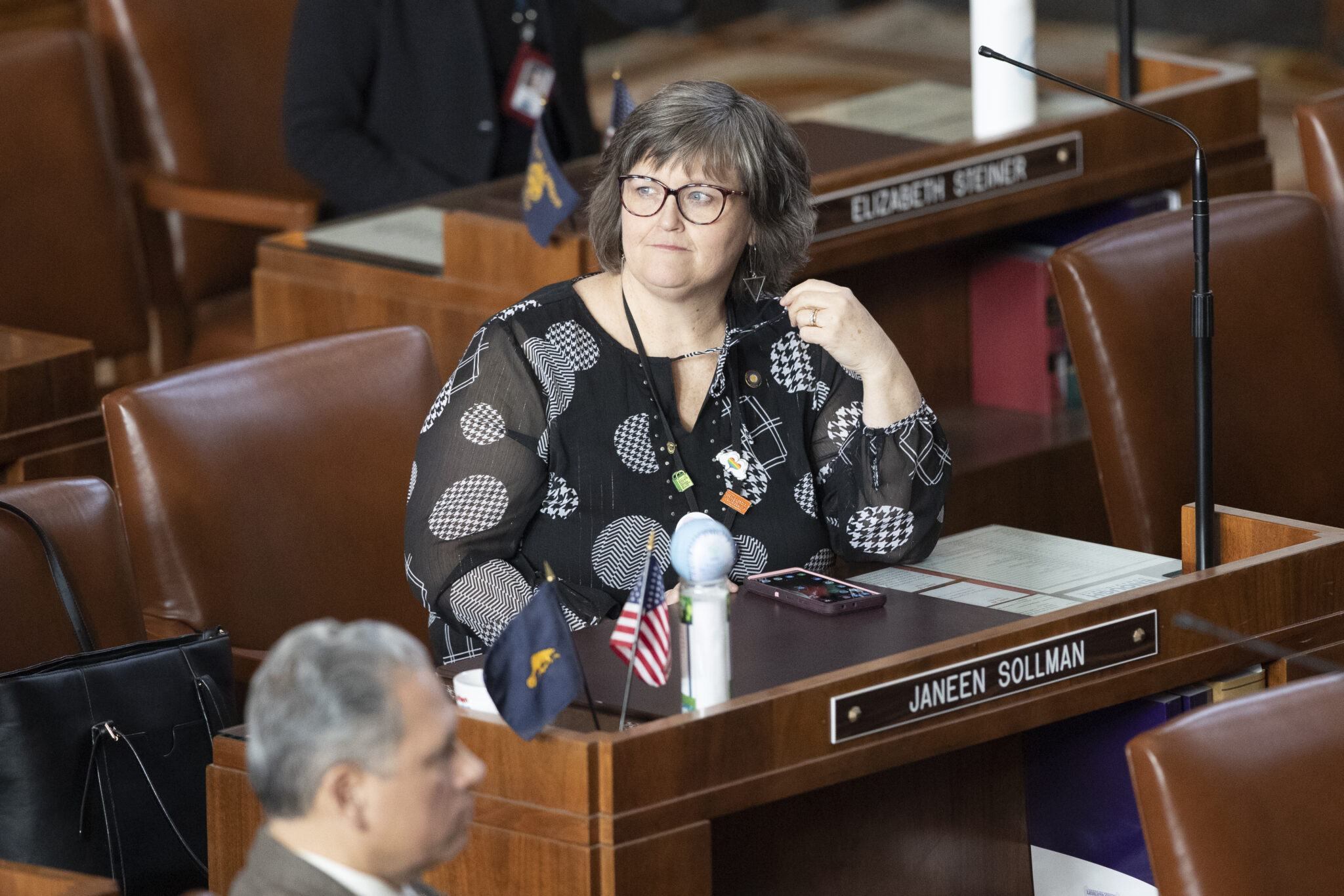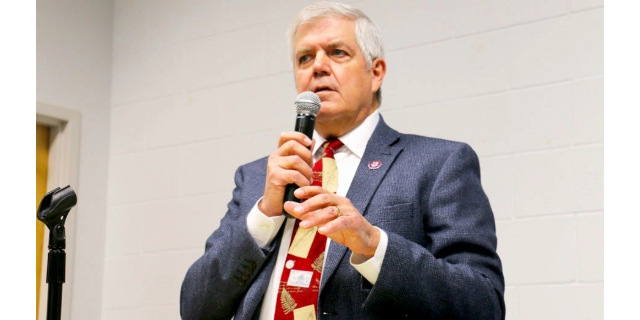Capital Chatter: PERS task force is almost done
Published 8:00 am Thursday, October 19, 2017

- Capital Chatter: All sides waiting for Brown to lead
Watching Gov. Kate Brown‘s PERS task force has been an odd experience.
The group met only four times. Some members were grossly unfamiliar both with state government and with PERS. That showed when they reported on their dealings with government insiders, who presumably had a vested interest in protecting the status quo.
It was disheartening that obviously brilliant people did not know, for example, how school district budgets operate in Oregon. Or that local governments and school districts are keenly aware of how PERS’ unfunded liability has been cutting into their operating budgets.
The task force held its final meeting Oct. 13, just when it seemed to be getting up to speed as a group.
• A $25.3 billion problem: The Public Employees Retirement System covers about 900 employers in Oregon, of which state government is one. PERS is at least $25.3 billion short of what is needed to pay future pensions. That gap is called its “unfunded actuarial liability,” or UAL. Brown appointed the blue-ribbon task force this year and charged it with finding at least $5 billion that could be used to reduce the UAL.
I had understood that a primary focus would be on identifying surplus state land and buildings for sale. Instead, the task force took a much wider look but with less depth.
• State government doesn’t know itself: Task force member Cory Streisinger, who was Gov. Neil Goldschmidt‘s legal counsel and later a state agency administrator, said Friday that the state lacks a comprehensive inventory of the property it owns. Instead, those records mostly are kept agency-by-agency.
I wondered: The task force’s first meeting was in July. Why was a state employee — or even a university MBA class — not immediately assigned to compile that statewide inventory so the task force would have that information to act on?
By the way, Streisinger’s historical knowledge of government has been an asset on the task force.
• PERS report coming Nov. 1: Friday was the task force’s final meeting. Its report will now be written behind closed doors — among the seven members and presumably Brown’s staff — before being unveiled on Nov. 1.
Task force chair Don Blair emphasized that the group will not make recommendations. Rather, it will give Brown a list of ideas to consider.
Among the ideas discussed Friday: Taking money from SAIF reserves, which Blair said was “not fiscally irresponsible.” Selling the Portland State Office Building, replacing it with two smaller and less-expensive buildings in suburbs. Putting a “Cadillac tax” on high-earning PERS recipients. Turning the Oregon Liquor Control Commission into a public corporation and earmarking some of its increased profitability for PERS. Setting up a state matching fund to encourage local governments and school districts to pay down their own unfunded actuarial liability.
• Changes at OHSU: Dr. Joe Robertson, the well-regarded president of Oregon Health & Science University, has been diagnosed with a mild form of multiple sclerosis and will retire at the end of this month. Robertson said his PERS benefits will start Nov. 1, and he offered to work for free as interim president through the 2017-18 academic year.
Robertson is a close friend of Oregon Senate President P eter Courtney, so Robertson’s departure could ultimately lessen OHSU’s influence in the Capitol. Meanwhile, OHSU Emeritus Professor Mitch Greenlick, 82, announced that he will seek re-election next year. The Portland Democrat has served in the Oregon House since 2003.
Regarding Robertson, Courtney issued this statement on Thursday: “Joe Robertson has been a dedicated public servant. He has been a remarkable leader of Oregon Health and Science University. He’s helped make OHSU a great hospital and one of the greatest research institutions in the nation. I was stunned when he called me and told me about his diagnosis. I was stunned again when he told me of his decision to retire. He needs to take care of his health and his family. I’m sure it is difficult for him to leave. I hope he stays on the faculty. Whoever Oregon finds to follow him, I know we are always going to need to have Joe around.”
• A ‘pugnacious’ Republican voice: Jonathan Lockwood is gone as the voice of the Oregon Senate Republicans. The word is that he is staying in Oregon and his new role will be announced in a few days. Will he wind up in Republican Knute Buehler‘s campaign for governor?
As the Senate Republicans communication director, Lockwood was more prolific, partisan and verbose than his counterparts in the Oregon Capitol. I wondered about the purpose of his lengthy press releases until I saw one appear — without a byline and seemingly unchanged — in a community publication.
An August profile of Lockwood in Colorado Politics was headlined, “Conservative communications maven Jonathan Lockwood shakes up Oregon statehouse with pugnacious approach.”
The article, which interviewed only Lockwood, started this way: “After cutting a provocative path though Colorado’s political scene for half a decade, conservative spinmeister Jonathan Lockwood pulled up stakes and decamped for a strange land with strange customs, a place unaccustomed to his rapid-fire, unrelenting attacks on liberals and his take-no-prisoners approach to making a point — a place called Oregon.”
It included this background: “Lockwood’s job in Oregon follows a gig helming Advancing Colorado, a bellicose advocacy organization — the Denver Post editorial page called Lockwood ‘flat-out deranged’ after one of its ads attacked U.S. Sen. Michael Bennet by depicting children counting down to a nuclear explosion.”
• Celebrate the holidays with political campaigns: Oregonians will endure a surge of political ads alongside this winter’s post-Christmas shopping ads. The state will hold a mail election on Jan. 23, 2018, on whether to affirm health care taxes approved by the 2017 Legislature.
Ballots to military and overseas Oregon voters will be mailed by Dec. 9. County election officials will mail regular ballots during Jan. 3-9. Voters’ pamphlets will be in the mail during Dec. 27-29.
It’s a special election, and Measure 101 will be the only item on the ballot. With a single-issue election at an odd time of year and on a complex issue, my only prediction is that voter turnout will be tiny. For the sake of democracy, I hope I’m wrong.
Tradition would say the “no taxes” forces have the upper hand. However, the taxes would help support the state Medicaid program for low-income Oregonians – the Oregon Health Plan – so more than 60 health care, public-employee union and liberal organizations have joined to advocate for the taxes.
• When is a tax not a tax? “Assessments without representation” doesn’t have the same ring as “Taxation without representation.” A key argument in the election is whether the taxes are “taxes” or “assessments.” The ballot title written by legislators, who have a vested interest in the outcome, refers to the taxes by the more benign label of “assessments,” which is term used in the legislation being referred to voters.
The tax opponents have appealed the ballot title to the state Supreme Court. If the justices say the ballot title must be rewritten, that will be done by the Attorney General’s Office. State Rep. Julie Parrish, who helped put the referendum on the ballot, says Attorney General Ellen Rosenblum already has weighed in on the side of “assessments” being the appropriate term.
• Be prepared for confusion: The 2017 Legislature passed House Bill 2391, which has 51 sections and uses the term “assessments” throughout. Republican Reps. Parrish, Cedric Hayden and S al Esquivel led the effort to refer five of those sections to voters. At a recent media availability, reporters struggled to get Hayden and Parrish to explain the taxes in laypeople’s terms.
Not only is the legislation complex, but the route to the ballot was confusing. Esquivel voted for the bill in the House, striking a deal with Democrats. He and others who supported the referendum want Oregonians to vote “no.” That’s because a “no vote” at the election would overturn the taxes, whereas a “yes” vote would keep them in place.
Dick Hughes has covered the Oregon political scene since 1976. Contact him at TheHughesisms@Gmail.com, Facebook.com/Hughesisms, YouTube.com/c/DickHughes or @DickHughes on Twitter.





